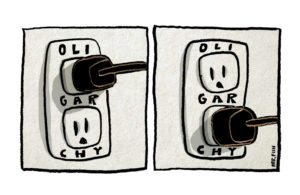Jimmy Carter: We Need Fewer Secrets
The former president bemoans the current White House's obsession with secrecy: "Increasingly, developed and developing nations are recognizing that a free flow of information is fundamental for democracy."The former president bemoans the current White House’s obsession with secrecy: “Increasingly, developed and developing nations are recognizing that a free flow of information is fundamental for democracy.”
Your support matters…Jimmy Carter in the Washington Post:
The U.S. Freedom of Information Act (FOIA) turns 40 tomorrow, the day we celebrate our independence. But this anniversary will not be a day of celebration for the right to information in our country. Our government leaders have become increasingly obsessed with secrecy. Obstructionist policies and deficient practices have ensured that many important public documents and official actions remain hidden from our view.
The events in our nation today — war, civil rights violations, spiraling energy costs, campaign finance and lobbyist scandals — dictate the growing need and citizens’ desire for access to public documents. A poll conducted last year found that 70 percent of Americans are either somewhat or very concerned about government secrecy. This is understandable when the U.S. government uses at least 50 designations to restrict unclassified information and created 81 percent more “secrets” in 2005 than in 2000, according to the watchdog coalition OpenTheGovernment.org.
Moreover, the response to FOIA requests often does not satisfy the transparency objectives or provisions of the law, which, for example, mandates an answer to information requests within 20 working days. According to the National Security Archives 2003 report, median response times may be as long as 905 working days at the Department of Agriculture and 1,113 working days at the Environmental Protection Agency. The only recourse for unsatisfied requesters is to appeal to the U.S. District Court, which is costly, timely and unavailable to most people. Policies that favor secrecy, implementation that does not satisfy the law, lack of a mandated oversight body and inaccessible enforcement mechanisms have put the United States behind much of the world in the right to information.
Independent journalism is under threat and overshadowed by heavily funded mainstream media.
You can help level the playing field. Become a member.
Your tax-deductible contribution keeps us digging beneath the headlines to give you thought-provoking, investigative reporting and analysis that unearths what's really happening- without compromise.
Give today to support our courageous, independent journalists.






You need to be a supporter to comment.
There are currently no responses to this article.
Be the first to respond.